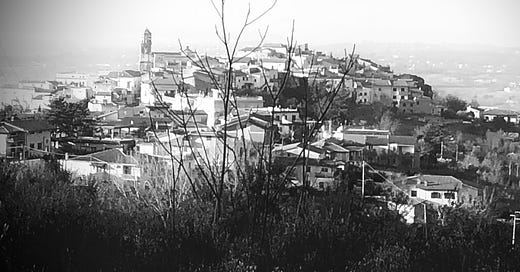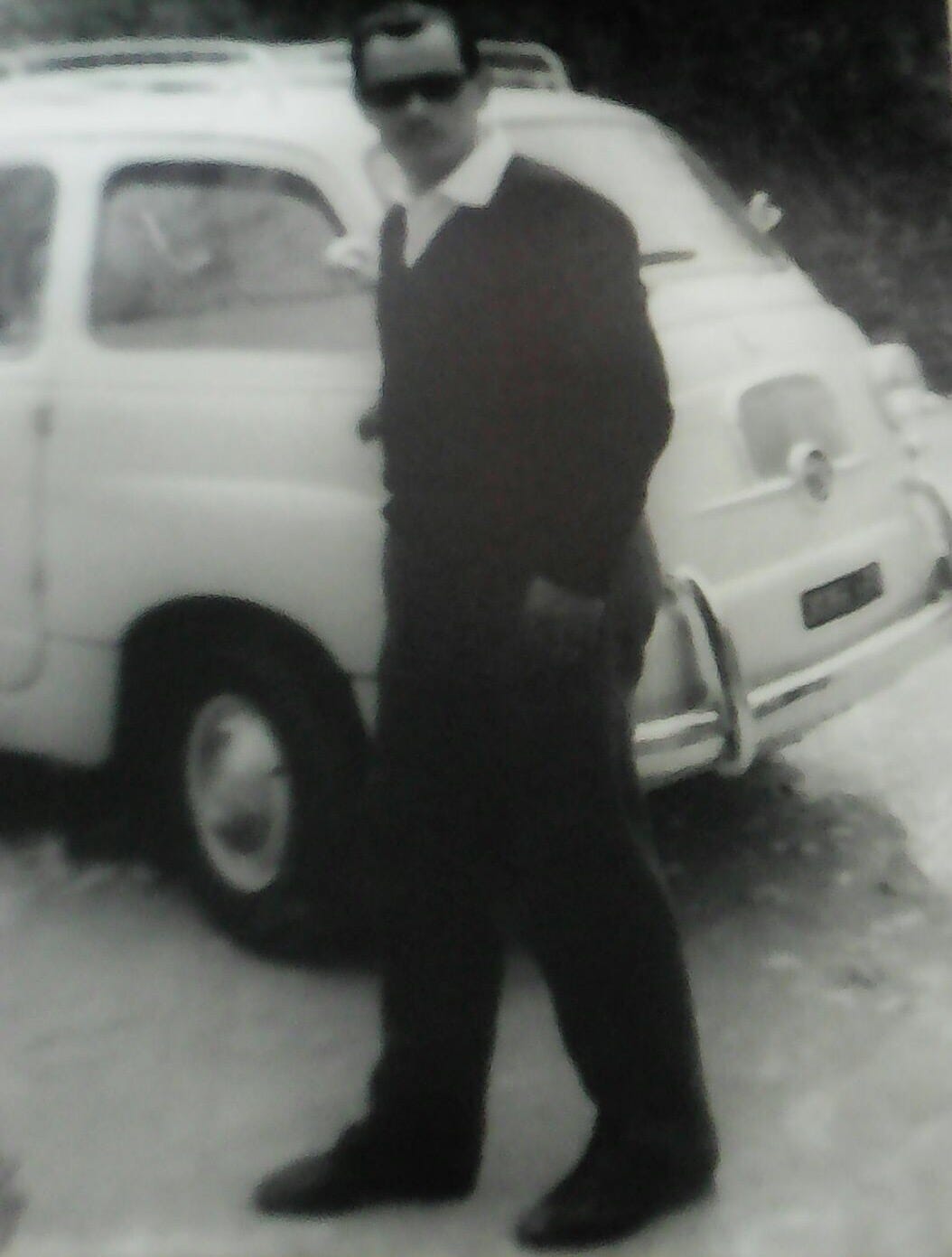Years ago, I set out to write a book. Initially, I envisioned it as a biographical novel, but over time, my vision evolved. I wrestled with whether to write a traditional novel or a memoir before finally settling on what feels most authentic—a Romanticized Autobiography.
The purpose of this book is simple: to leave something behind—a thread connecting me to future generations. I want my sons, my grandchildren, and those who come after them to have something tangible, something they can pass along. A book that doesn’t just tell them who I was, but how I lived, what I felt, and the moments that shaped me.
I often wish I had a book from my great-great-grandfather—a record of his life, his struggles, his triumphs, the way things were in those days. The little details that history forgets but personal stories preserve. This is my way of ensuring that long after I’m gone, a part of me and the world I lived in remains for those who might want to know more than just a name on a family tree.
What I write is based on real events, though some details may not be widely known. That’s why I call it a Romanticized Autobiography—it’s rooted in truth, but infused with emotions and depth to create an engaging read.
And so, I’ve chosen the title: Threads of Life: A Father’s Untold Stories.
The phrase untold stories might suggest secrets, but in reality, they are simply the overlooked moments—the small details and perspectives that bring familiar tales to life in a new way.
Now that I have this wonderful Substack community, I thought it would be meaningful to share chapters from time to time. Although it’s still a work in progress, I take advantage of this space to share some chapters along the way.
Today, I’m posting Chapter 2. Since this is a memoir, it follows the chronology of my life—this chapter is about the day our family emigrated.
I hope you enjoy it.
Chapter 2 – The Departure
September 24, 1965
The first light of dawn spilled across the medieval village, casting a golden glow upon the cobblestone streets and ancient stone buildings. The clock on the bell tower struck six, its chimes echoing through the quiet morning air.
As I slid into the back seat of my uncle Guido’s white Fiat 600 Multipla, a strange mix of excitement and sorrow filled me. San Vittore del Lazio, a little village in the south of the Lazio region was my home, my entire world. I worried that the countless childhood memories I had made here were about to become just that: memories.
In the cramped back seat, pressed beside me, were my two sisters, Pina (16) and Genoveffa (14), along with our cousin Vincenzo—my closest confidant and partner in mischief.
"Agostino, fatti piccolo che ci entro anche io!" "Agostino, make yourself smaller so I can fit!" Said Vincenzo in his usual playful voice as we squeezed together, beginning a journey that would forever change our lives.
In the front seats, my father and his brother, zio (uncle) Guido, were already in a heated discussion—something about a late payment for my father’s business. Their voices rose above the rumble of the car, a stark reminder of the struggles that still lingered twenty years after the end of World War II.
The decision to leave our homeland had never been discussed with us children. It was a decision made out of necessity, a desperate reach for a better future.
Strapped atop the car sat two tightly secured chests, packed with all we could bring. Behind us followed zio Marco and zia Stella, with my mother, my eldest brother Gino (18), and my baby brother Pompeo (2) crammed inside. Trailing close behind, a third car carried zio Antinori, his wife zia Anna, my nonni, and zia Emma. On nonna Giuseppina’s lap sat my cousin Rosaria, who wouldn’t have missed our departure for anything in the world.
Rosaria and I shared something special, a bond woven from the very fabric of our family’s history. Born on the same day to fathers who were brothers and mothers who were sisters, we had always felt like two halves of the same whole.
As we neared the village piazza, I was surprised to see clusters of villagers already gathered near the fountain and shops. Their voices filled the air:
"Ciao, Vitto!"
"Addio, Margherita!"
"Ciao, bambini!"
It struck me then—our departure wasn’t just the beginning of a new journey for us. It was a loss for them, too.
We made our way down the narrow road, winding toward the provincial highway. My gaze fixed on an old water mill to the left side of the road. A pang of nostalgia hit me. Would I ever see this again?
We reached the Casilina road, the sign reading: Napoli – 83 km. I had read that sign countless times while accompanying my father to Naples, where he purchased shoes for our family’s store. Those trips had been nerve-wracking—left alone in the truck, watching over the merchandise, fearing thieves. My father always reassured me: "They won’t steal if they see someone inside." Still, I would sit anxiously, waiting for his return.
On the way home, the air would be thick with the scent of sfogliatelle from the cafés lining the streets. I had always hoped my father would stop and buy one, but he never did.
The port of Naples was a chaotic sea of people clamoring to board massive ships bound for new worlds. Among them, our family and relatives made their way to the SS Queen Frederica—a vessel built by the Americans and now owned by a Greek tycoon.
Holding tightly to my mother’s hand, I stepped onto the narrow gangway. Excitement warred with trepidation. The sky was cloudless, the sun still warm against my bare legs. I wore short pants and a V-neck sweater over a white shirt.
A crew member, speaking with a pronounced Greek accent, led us down a long, narrow corridor to our cabins.
"Mister Masecchia, along with room 226, this will be your katoikia," he said, using the Greek word for "residence."
Cabin 224—ours—was snug, with bunk beds, a tiny desk, and a cramped bathroom. Gino, Pina, and Geny claimed 226, while I shared 224 with Pompeo and our parents.
Zio Guido, zia Maria, nonno Luigi, and nonna Giuseppina lingered, wiping away tears. The weight of the departure hung heavily, the unspoken understanding that many emigrants never returned home.
Then came the announcement:
"Attenzione, attenzione, tutti i visitatori e accompagnatori sono tenuti di sbarcare dalla nave immediatamente." The announcement blared over the speakers, requesting all non-passengers to disembark immediately. It was goodbyes similar to those seen at a funeral.
The upper deck overflowed with passengers as the mid-afternoon sun retreated behind the horizon. On the pier below, our family and friends waved frantically, calling our names, their faces streaked with tears.
The ship’s band began to play Greek music and as the boat began its voyage, the sound of "Ta paidia tou Peiraia" filled the air. A melody that stuck in my memory for years afterwards.
My heart clenched.
Rosaria and I turned ten that day. Our paths were diverging in ways we couldn’t yet understand.
Tears streamed down my face as I waved, watching her grow smaller and smaller until, at last, she disappeared into the blur of the harbor.
And with that, our journey truly began.








Uncle T, thank you for sharing your beautiful and personal stories. They mean a lot to me .
I love our family stories and this is a beautiful gift.
Claudia
Formidable idée, à suivre avec intérêt, merci Tino, vous avez les mots et l’émotion pour raconter.